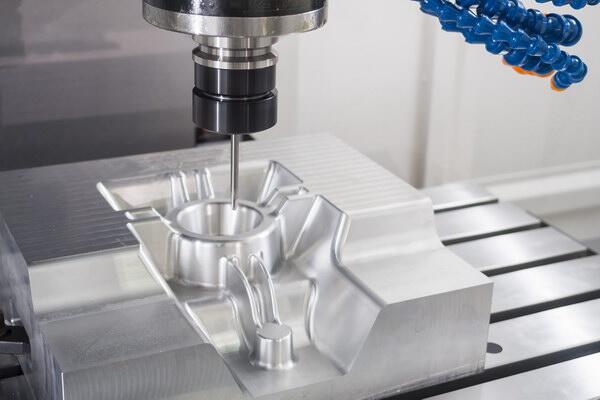BETTER TOUCH BETTER BUSINESS
Contact Sales at Lori.
Aluminum is one of the most commonly used materials for machining. In fact, the CNC machining process of aluminum materials is second only to steel in the frequency of use.
Chemical element aluminum in the form of high purity, soft, good ductility, no magnetism, the appearance of silver white. But the element is not used only in its pure aluminum state. Aluminum is often cast in alloys with various elements, such as manganese, copper, and magnesium, to form a variety of aluminum alloys with a variety of significantly improved properties.
Although there are countless aluminum alloys with varying degrees of characteristics, there are some basic characteristics that are basically applicable to all aluminum alloys.
1.Machinability
Aluminum can be rapidly formed, manufactured and processed under the action of a variety of different treatment processes. Aluminum can be cut quickly and easily by machine tools because it is soft, easy to cut, inexpensive and requires less force than steel. These features are a great advantage for both the mechanic and the customer who orders the part. Moreover, aluminum's high processability means that it is less prone to deformation during processing. Since it allows the CNC machine to achieve higher tolerance, its accuracy will be higher.
2.Specific strength
The density of aluminum is about one-third that of steel. The mass is relatively light. Despite its light weight, aluminum is very strong. This combination of strength and weight is called the specific strength of the material. The high specific strength of aluminum makes it suitable for many industrial parts, such as the automotive and aerospace industries.
3.Anti-corrosion
Aluminum resists scratch and corrosion in conventional Marine and atmospheric environments. This property can also be strengthened by anodizing. It should be noted that the corrosion resistance of different grades of aluminum is also different. The most conventional and ordinary CNC machining level has the strongest resistance.

4.Low temperature performance
Most materials lose some of their superior properties at sub-zero temperatures. Carbon steel and rubber, for example, become brittle at low temperatures. Aluminum can maintain its softness, ductility and strength at very low temperatures.
5.Electrical conductivity
The electrical conductivity of pure aluminum is approximately 37.7 million Siemens/m at room temperature. Although aluminum alloys have lower electrical conductivity than pure aluminum, they are sufficient for use in electronic components. On the other hand, if the desired property of a machined part is not electrical conductivity, aluminum will not be the right material for it.
6.Recyclability
Because the CNC machining process is a reduction manufacturing process, it will produce a large number of chips, that is, waste. Aluminum is highly recyclable and requires relatively little energy, effort and cost to recycle. This makes it popular among those who want to recoup expenses or reduce material waste. It also makes aluminum a more environmentally friendly processing material.
7.Anodizing possibility
Anodizing, a surface processing process, improves the wear and corrosion resistance of the material, which is very easy to achieve for aluminum. This process also makes it easier to process the coloring of aluminum parts.
Copyright © 2025 Shenzhen Lori Technology Co.Ltd. | All Rights Reserved.